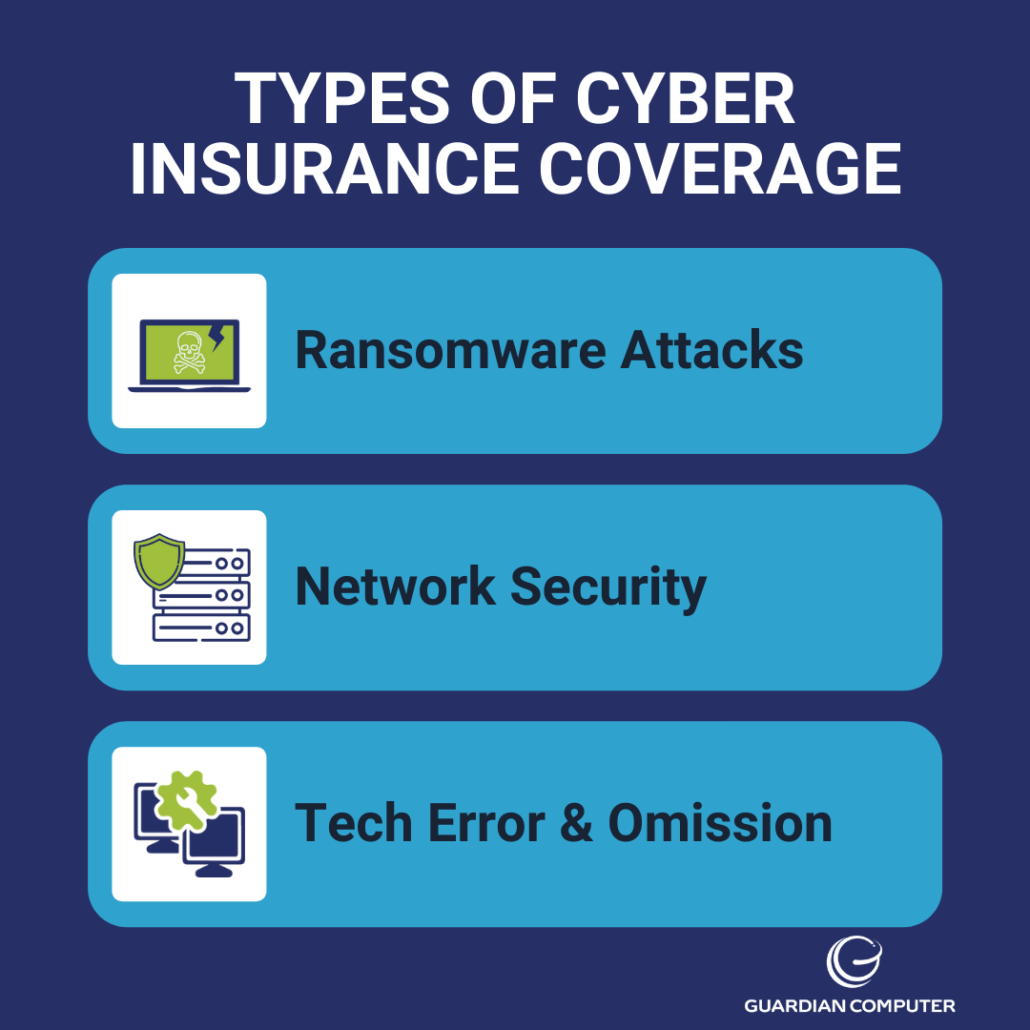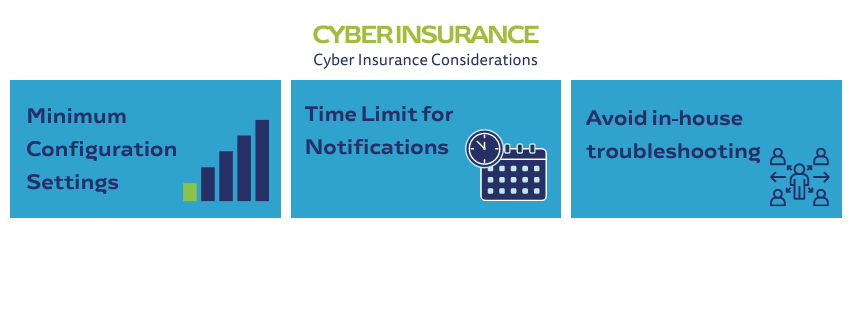While the new year is the time to reflect on the past, it’s also the time to make resolutions for the future. With ransomware attacks becoming an increasing trend, small businesses should consider cyber insurance to protect their company.

Cyber insurance covers your business’s liability for data breaches and attacks. The insurance provider will offer a variety of coverage including ransom attacks, network security, tech error and omissions, and so on.
It’s important to understand the type of cyber insurance coverage you are paying for in the same way you examine your car insurance policy. For example, if you get into a car accident only having limited liability insurance, your insurance provider may not cover all costs once you’ve exceeded certain limits. Costs associated with repairing your car or medical bills may fall to you because you weren’t sufficiently covered.
If this is the first time you’re hearing about cyber insurance, we’ll explain how to apply for adequate coverage. If you already have cyber insurance, you should familiarize yourself with your policy and review it from time to time as the policy may change at renewal.
Applying for Cyber Insurance
When applying for cyber insurance, you need to understand what the carrier is offering. You’ll receive a questionnaire from the carrier to assess your current set up. The questionnaire will determine the tech your company uses and the coverage you may need.
It’s imperative that you answer these questions to the best of your ability. Do not mindlessly check of all the boxes you think the carrier wants to hear. Answering the questionnaire without thinking through your systems or putting too much focus on the coverage price tag will be to your detriment.
Just like limited car insurance, a limited cyber insurance policy may leave you stuck footing the bill after a data breach. Alternatively, you may end up overpaying for coverage if you selected systems that you don’t actually use.
If you’re not sure how to answer the questions, contact your Guardian Support Specialists. We’ll be happy to help.
Insurance Claim Considerations
Data breaches and ransomware attacks happen. Don’t panic if you’re on the receiving end of an incident. But, be aware of the criteria your policy may require.
Get in the habit of reviewing your policy at the time of renewal. Insurance companies will renew the policy with updated requirements from the previous year. If you have a breach but your systems don’t comply with the new obligations, the insurance company may void your policy leaving you stuck with the clean-up costs.
If you do get hit with an attack, the carrier will require you to follow specific steps. Each policy will have explicit criteria you must follow once a breach occurs. You can bet the insurance provider will look at the fine print before paying out on a claim. Familiarize yourself with your policy before you need to make a claim.

If you need to make a claim, consider the following:
- Most insurances have minimum configuration settings and written internal policies. Without those, a policy may be void.
- Insurance companies also have a time limit for notifications after suspecting a breach. If you wait too long, your policy is void.
- They also require THEY do all remediation. If a business starts troubleshooting the breach, the policy can be void.
Let Guardian Be Your Guide
Guardian doesn’t offer cyber insurance, but we do review our clients’ policies to ensure they have their bases covered. Send us that questionnaire, and we’ll help you fill it out. We can also help you assess your current policy to make sure you are adequately covered and meet the policy requirements.
Our team is also developing trainings for your cyber security needs. In the meantime, check out these resources to learn more:
Let Guardian manage the behind-the-scenes tasks that keep your business running so you can manage your clients. Trade your downtime for technological peace of mind. Connect with us to learn more.







